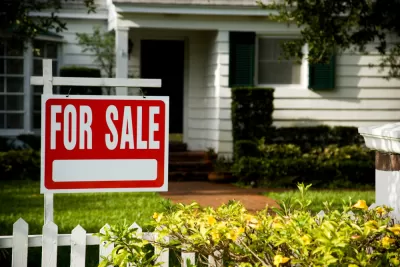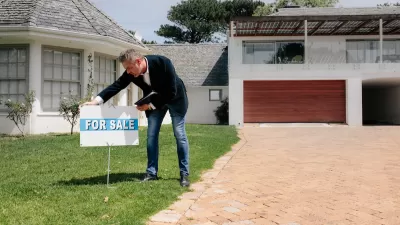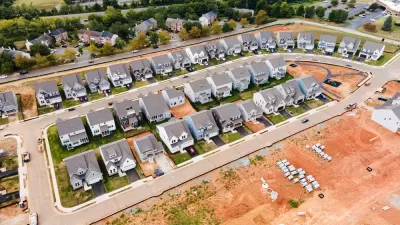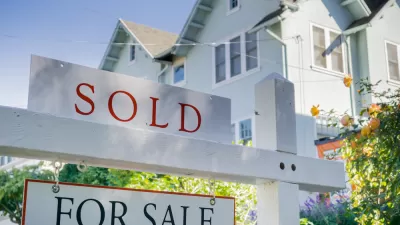The sharp rise in housing costs created massive wealth for property owners, while shutting many potential homebuyers out of the market.

The pandemic housing market created over $6 trillion in new wealth, according to an article by Emily Badger and Quoctrung Bui.
It’s a remarkably positive story for Americans who own a home; it’s also inseparable from the housing affordability crisis for those who don’t.
“That dual reality follows what has been a mass wealth creation event with few precedents in American history,” the article continues. “During the last housing boom, the run-up in home values was similarly dizzying but limited to fewer parts of the country. And that equity largely vanished in the kind of bust that economists say is far less likely to happen this time.”
The authors clarify that “this wealth is not the same as having money parked in a bank account, of course. To use it, households must sell a home or tap its value through a tool like a home-equity loan, and that’s not risk-free. But evidence shows that homeowners wield home equity in real ways — to send their children to college, to start businesses or to invest further in housing, building even more wealth.”
Rising costs, however, are putting homeownership as a means of wealth creation out of reach for many more households. “It will amplify inequality, as gains go disproportionately to baby boomers (at the expense of millennials who will one day buy their homes), and to white households, who have a homeownership rate that is 30 percentage points higher than that of Black households.”
According to Benjamin Keys, a professor at the Wharton School of Business, the recent boom in home prices happened largely because building new housing is so difficult in the United States. This leads the authors to an alarming conclusion: because high home values benefit existing homeowners, who often resist new construction near them, “that could make the case for building more of it harder still.”
FULL STORY: The extraordinary wealth created by the pandemic housing market

Alabama: Trump Terminates Settlements for Black Communities Harmed By Raw Sewage
Trump deemed the landmark civil rights agreement “illegal DEI and environmental justice policy.”

Planetizen Federal Action Tracker
A weekly monitor of how Trump’s orders and actions are impacting planners and planning in America.

How Atlanta Built 7,000 Housing Units in 3 Years
The city’s comprehensive, neighborhood-focused housing strategy focuses on identifying properties and land that can be repurposed for housing and encouraging development in underserved neighborhoods.

In Both Crashes and Crime, Public Transportation is Far Safer than Driving
Contrary to popular assumptions, public transportation has far lower crash and crime rates than automobile travel. For safer communities, improve and encourage transit travel.

Report: Zoning Reforms Should Complement Nashville’s Ambitious Transit Plan
Without reform, restrictive zoning codes will limit the impact of the city’s planned transit expansion and could exclude some of the residents who depend on transit the most.

Judge Orders Release of Frozen IRA, IIJA Funding
The decision is a victory for environmental groups who charged that freezing funds for critical infrastructure and disaster response programs caused “real and irreparable harm” to communities.
Urban Design for Planners 1: Software Tools
This six-course series explores essential urban design concepts using open source software and equips planners with the tools they need to participate fully in the urban design process.
Planning for Universal Design
Learn the tools for implementing Universal Design in planning regulations.
Caltrans
Smith Gee Studio
Institute for Housing and Urban Development Studies (IHS)
City of Grandview
Harvard GSD Executive Education
Toledo-Lucas County Plan Commissions
Salt Lake City
NYU Wagner Graduate School of Public Service





























